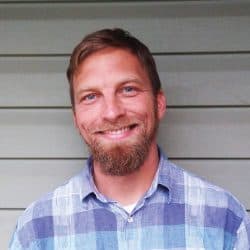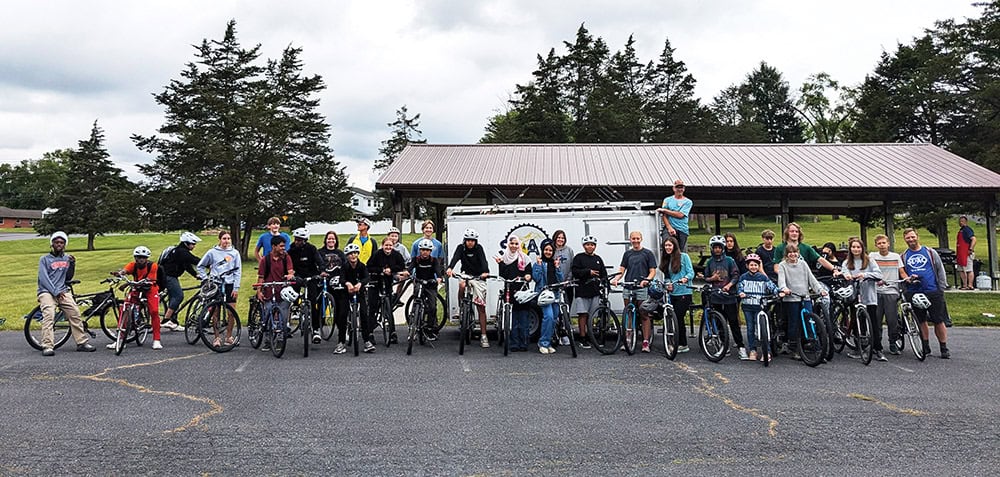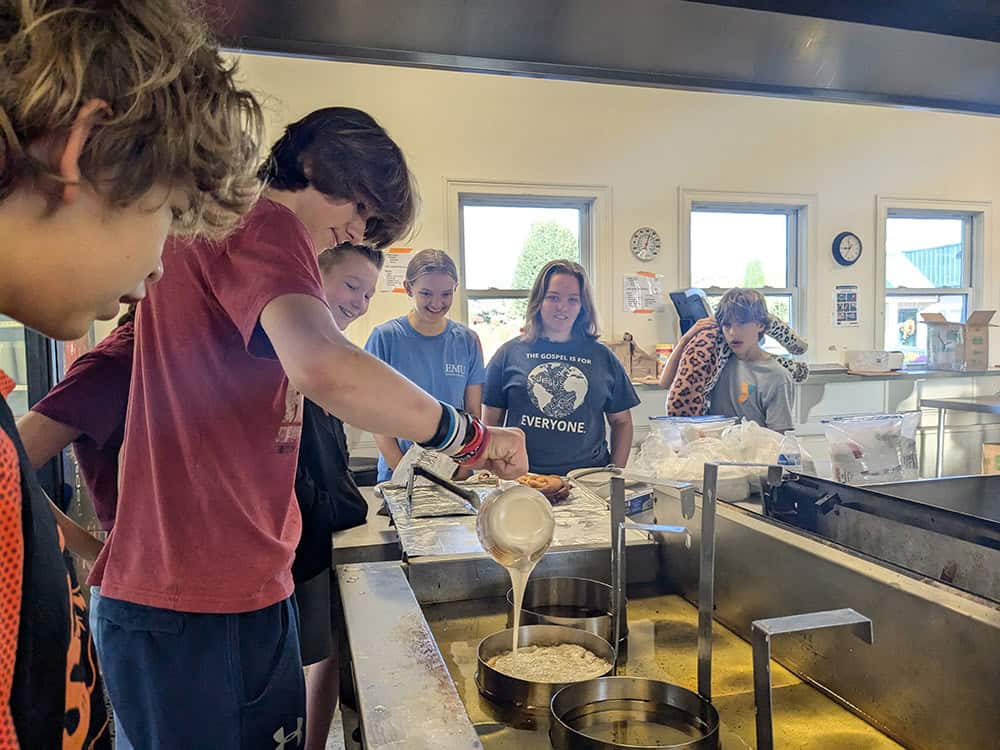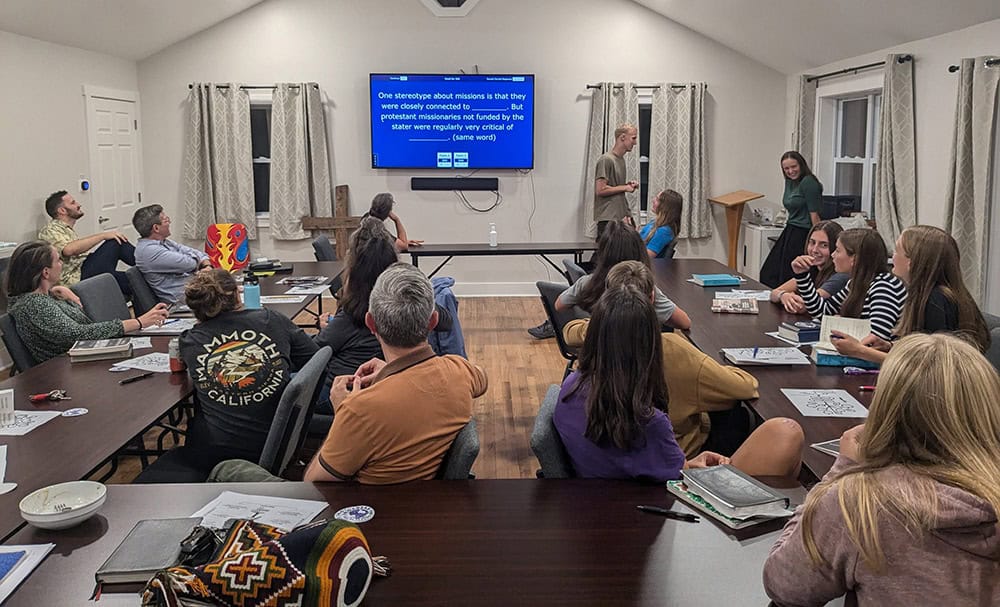For a Generation to Come
The mission of the SLAQ program is to raise up youth as serving leaders through practices of adventure, service, and wisdom.
By Ken Wettig

As the pandemic was in full swing in the spring of 2020, parents, pastors, and mentors around the globe wondered what kind of world the next generation was going to inherit. For parents especially, the sudden and drastic pivot towards virtual solutions for education, worship, and social connection was overwhelming. A subconscious question was emerging in the hearts of many of us.
What impact will virtualism have on initiating the next generation towards faith-filled maturity in this new, ever-changing, ever-evolving digital landscape?
Since the pandemic, five of the last six advisories from the U.S. Surgeons General have been aimed at the intersection of social isolation, parental exhaustion, and the youth mental health crises. Now is the time for the church to remove the question mark from the end of the above question, and develop a new sentence, a new vision of spiritual formation for the next generation—preferably one that ends with an exclamation mark.
It has been said that when the church finds a chasm, she builds a bridge. So, what is the bridge God wants to build for this generation?
Without question, the church is nurturing creative responses to the current challenges facing Gen Z and Gen Alpha. In my own context I think of the innovative work of The Soil and The Seed Project to combine gifts of liturgy and art as a powerful formative experience within families.
I want to share specifically about the role SLAQ is playing in providing a next-generation program for counter-cultural, mission-driven, holy resistance. SLAQ’s vision is the next generation fully alive for the glory of God and the good of our communities. That vision works its way into reality through our mission: To raise up, among the next generation, diverse cohorts of serving leaders in the way of Jesus through real-life: adventure, service, and wisdom.
That mission becomes embodied through a yearly rhythm built into our program in which our high-school-aged participants (whom we call SLAQers) will engage in our three real-life practices.

Adventure
Depending on their own gifts and motivations, SLAQers are invited to embrace the challenge of engaging anywhere from 50 to 400 miles of real-life adventure over the course of a year. These miles may be biked, hiked, or paddled depending on the various opportunities in a given year.
While the literal experience of adventure has a ton of value in its own right, a major part of our reason for engaging outdoor adventure is to discover the patterns of adventure within life itself. That is the invitation: to embrace challenge within the promise that, in the end, it will have been more than worth the hardships endured. While developing the structure for these adventures is no doubt a lot of work, once the vans are rented, the gear loaded, and the itinerary set, it is a beautiful thing to simply sit back and watch as the Spirit uses the adventure itself as a teacher. At the end of last year’s Faith Adventure, without being prompted, one youth said simply, “I have never felt more alive than I was on the Faith Adventure.”

Service
Each year SLAQ provides the opportunity for over 40 hours of community service work and outreach. Over the years, this has taken many different forms, from hosting trivia nights at a local retirement community, to developing a three-day Adventure Camp for middle-school-aged newcomers (recent immigrants and refugees).
One of the highlights of the more than four years of offering SLAQ was, without a doubt, our recent cross-cultural E3 Collective trip to Bogotá, Colombia to serve alongside Viva Youth. Because our own culture is one of entitlement, nothing quite shakes us out of the self-entitlement malaise like experiencing another culture. Once we are out of the rat race for a while, the importance of service starts to shimmer again in our hearts and minds.

Wisdom
For SLAQ, the practical outworking of wisdom occurs through our 20-30 teachings and conversations throughout the year, where together we both entrust and exchange biblical wisdom.
Each SLAQ Day throughout the year begins with a teaching and conversation around a serving leadership principle on display in biblical characters. Together we explore the gift and dangers of leadership as a key part of God’s mission in the world. Through our Crucial Conversations (CruCon) practice, SLAQers tackle conversations at the intersection of faith and culture alongside their parents, pastors, or mentors. One participant said “CruCon is like a theological battle royale.” Most recently, the SLAQ cohort engaged in a twelve-week CruCon series on faith and sexuality.
Why do we do this? A quote by the Holocaust survivor Viktor Frankl is one of many that reaffirms our goals and practices. Reflecting on what built resilience among prisoners amidst the despair of the concentration camps, he wrote, “We had to learn ourselves, and furthermore we had to teach the despairing men around us that it did not really matter what we expected from life, but rather what life expected from us.”
In our day, SLAQ wants to create a context where the next generation can step out of the comfort-driven streams of culture, and listen to what life expects of them. To embrace reality as the primary tool through which God has invited us to join in God’s cross-generational mission: that we all might “have life, and have it to the full” (John 10:10).
Ken Wettig is a VMMissions worker serving as the founder and director of SLAQ (Servant Leader Quest), based in Harrisonburg, Virginia.
